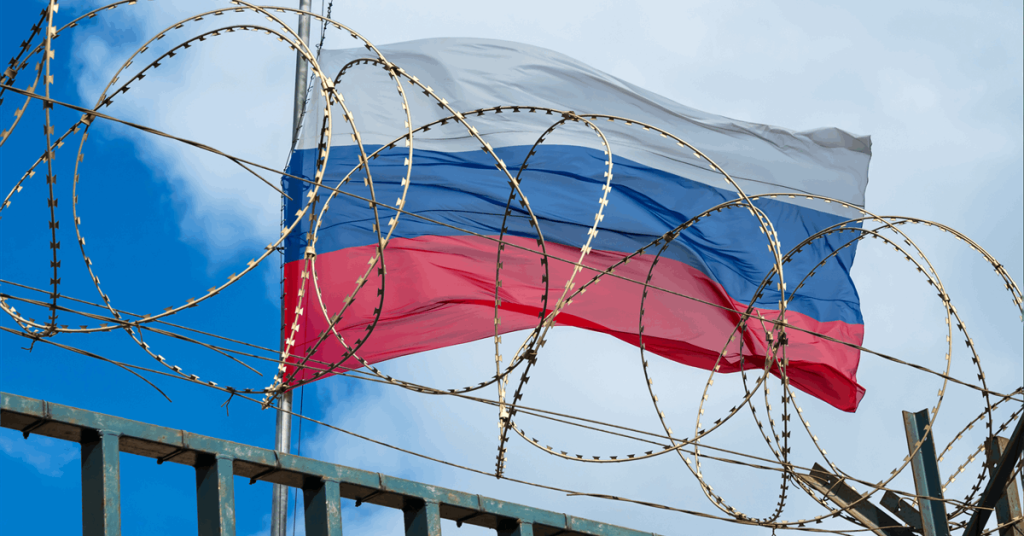Russian oil producer Lukoil PJSC has agreed to sell its international assets to energy trader Gunvor Group, a week after being hit by US sanctions.
The country’s No. 2 oil producer said it had accepted an offer from Gunvor and made a commitment not to negotiate with other potential buyers. If successful, the deal would involve the transfer of a sprawling global network of oil fields, refineries and gas stations to one of the world’s top independent commodity traders.
The US last week blacklisted oil giants Rosneft PJSC and Lukoil as part of a fresh bid to end the war in Ukraine by depriving Moscow of revenues. It was the first major package of sanctions on Russia’s petroleum industry since US President Donald Trump took office, and has left governments and business partners clambering to understand the impact.
The offer — for which no value was disclosed — includes Lukoil International’s trading arm Litasco, but not the business units in Dubai which have recently become subject to sanctions, said a person familiar with the matter.
Gunvor itself has had a long history with Russia. Its co-founder Gennady Timchenko was placed under US sanctions in the wake of the Kremlin’s annexation of Crimea in 2014, with the US government claiming at the time that Russian President Vladimir Putin had “investments in Gunvor,” which the company has consistently denied.
Since Timchenko sold his shares, it’s now majority-owned by co-founder and chief executive officer Torbjorn Tornqvist.
After making record profits from recent volatility in energy markets, cash-rich commodity traders are spending big on assets to help lock in better margins for the future. A potential deal could provide Gunvor with a system of upstream and downstream businesses akin to the trading units of majors like BP Plc and Shell Plc.
The deal is subject to clearance from the US Treasury’s Office of Foreign Assets Control, along with other applicable authorizations. Gunvor has already started conversations with US authorities, according to a person familiar with the matter.
Lukoil is the most internationally diverse of Russia’s oil giants. Its assets include oil fields, refineries and a network of more than 5,000 gas stations from the US to Belgium.
The size of Lukoil’s international business could make the mechanics of such a deal complex — Gunvor had a total equity of $6.5 billion at the end of 2024, with around 85% owned by Tornqvist. It also holds stakes in assets such as a gas power plant in Spain and an oil refinery in Germany.
Lukoil International’s 2023 annual report shows it had equity of 19.1 billion euros ($22.2 billion), meaning the deal is likely to be significant in size, underscoring the company’s vast scale in global oil markets.
Its trading arm Litasco, which operates from Geneva and Dubai, bought and sold an average of 1.19 million barrels a day last year, according to its annual report, though it came under pressure from banks and other commodity dealers after sanctions were imposed on Lukoil by the US and UK.
The Russian company holds 75% of Iraq’s giant West Qurna 2 oil project, which can produce close to 500,000 barrels a day, and 80% of Block 10 in the same area. Its upstream businesses also include minority stakes in projects in countries such as Kazakhstan, Uzbekistan and Azerbaijan, as well as a number of African nations. Their share in Lukoil’s total crude production last year was only 5%, according to the company’s annual report.
The firm also owns an oil refinery in Bulgaria, where the country’s energy minister had been in talks with the US Treasury about maintaining operations after sanctions were imposed.
Generated by readers, the comments included herein do not reflect the views and opinions of Rigzone. All comments are subject to editorial review. Off-topic, inappropriate or insulting comments will be removed.
element
var scriptTag = document.createElement(‘script’);
scriptTag.src = url;
scriptTag.async = true;
scriptTag.onload = implementationCode;
scriptTag.onreadystatechange = implementationCode;
location.appendChild(scriptTag);
};
var div = document.getElementById(‘rigzonelogo’);
div.innerHTML += ” +
‘‘ +
”;
var initJobSearch = function () {
//console.log(“call back”);
}
var addMetaPixel = function () {
if (-1 > -1 || -1 > -1) {
/*Meta Pixel Code*/
!function(f,b,e,v,n,t,s)
{if(f.fbq)return;n=f.fbq=function(){n.callMethod?
n.callMethod.apply(n,arguments):n.queue.push(arguments)};
if(!f._fbq)f._fbq=n;n.push=n;n.loaded=!0;n.version=’2.0′;
n.queue=[];t=b.createElement(e);t.async=!0;
t.src=v;s=b.getElementsByTagName(e)[0];
s.parentNode.insertBefore(t,s)}(window, document,’script’,
‘https://connect.facebook.net/en_US/fbevents.js’);
fbq(‘init’, ‘1517407191885185’);
fbq(‘track’, ‘PageView’);
/*End Meta Pixel Code*/
} else if (0 > -1 && 77 > -1)
{
/*Meta Pixel Code*/
!function(f,b,e,v,n,t,s)
{if(f.fbq)return;n=f.fbq=function(){n.callMethod?
n.callMethod.apply(n,arguments):n.queue.push(arguments)};
if(!f._fbq)f._fbq=n;n.push=n;n.loaded=!0;n.version=’2.0′;
n.queue=[];t=b.createElement(e);t.async=!0;
t.src=v;s=b.getElementsByTagName(e)[0];
s.parentNode.insertBefore(t,s)}(window, document,’script’,
‘https://connect.facebook.net/en_US/fbevents.js’);
fbq(‘init’, ‘1517407191885185’);
fbq(‘track’, ‘PageView’);
/*End Meta Pixel Code*/
}
}
// function gtmFunctionForLayout()
// {
//loadJS(“https://www.googletagmanager.com/gtag/js?id=G-K6ZDLWV6VX”, initJobSearch, document.body);
//}
// window.onload = (e => {
// setTimeout(
// function () {
// document.addEventListener(“DOMContentLoaded”, function () {
// // Select all anchor elements with class ‘ui-tabs-anchor’
// const anchors = document.querySelectorAll(‘a .ui-tabs-anchor’);
// // Loop through each anchor and remove the role attribute if it is set to “presentation”
// anchors.forEach(anchor => {
// if (anchor.getAttribute(‘role’) === ‘presentation’) {
// anchor.removeAttribute(‘role’);
// }
// });
// });
// }
// , 200);
//});

